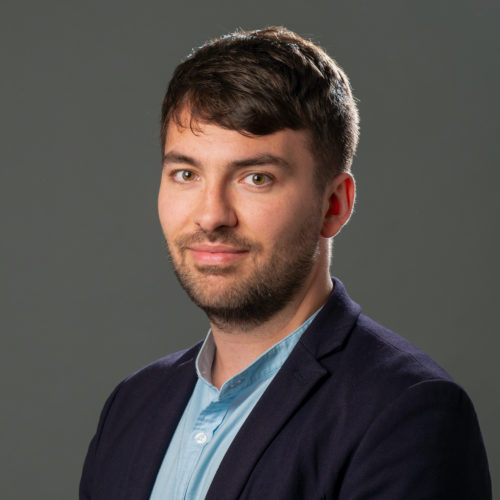
Throughout his career, Pierre Bagaria has always focused on combatting climate change.
As a Senior Manager for COP, he’s part of a team progressing Pentland and other early-stage UK offshore wind projects. Once completed, these developments will provide vital green energy and support the acceleration of floating wind globally, helping to meet net zero.
Read on to learn about Pierre’s career journey, his passion for renewable energy, and what’s needed from industry to realise the huge potential of floating offshore wind.
How did you career journey begin?
My interest in engineering stems back to when I was young. I was always curious, asking questions about how things worked and why things were done in a certain way. In my early years, I wanted to become a teacher so I could pass on this knowledge, with a focus on supporting those who struggled more academically. While this to be my path, I did provide private tutoring in maths and physics during university.
While studying a mechanical and electrical engineering degree in France, the news was filled stories about climate change and its impact. This inspired me to pursue a career in renewables to play my part in combatting these issues.
I went on to study a masters in renewable energy in Edinburgh. This was an obvious choice given Scotland’s leading position within renewables development. It’s now been ten years and there not been one day where I’ve regretted my decision.
How did you come to join the offshore wind sector?
Offshore wind is an incredible industry for young people passionate about making a difference to our world. Knowing that I’m contributing to reducing the impact of climate change is the best motivation I could ask for. This drive to make meaningful change has been rewarded with great experiences and responsibilities at COP.
I initially decided to work for COP because I recognised myself in their values and I’d always been impressed by the quality of the people working in the team. Since I joined, that impression has been confirmed; I’m surrounded by experts who I learn from every day.
Tell us about your role at COP.
On Pentland, I’m in charge of the project’s financing, engaging with lenders and managing advisors from initial development through to financial close of the project.
On our other early phase developments, I manage a multi-disciplinary team responsible for progressing projects from seabed lease to mature project concept.
Our role is to define the basis of what the project will look like through early engineering, procurement and consents activity. This includes selecting the size and layout of the wind turbines and considering the foundations.
What are the key lessons you’ve learned working on Pentland so far?
The biggest challenge for the floating wind industry is deploying gigawatt scale projects at speed to accelerate cost reduction and ensure energy supply, providing local economy benefits in the process.
To achieve this, we need certainty on the pipeline of floating projects, as well as certainty on grid availability and route to market. We also need to ensure port infrastructure and supply chain are equipped to support these projects, to maximise local content and ensure a positive impact on the UK economy.
The room for innovation in floating far exceeds what I’ve experienced in the fixed bottom sector. Universities, developers and supply chain are working to create products or methodologies to help lower the cost of floating wind energy. This also leads to a lot of collaboration amongst industry, highlighting a common goal to realise the potential we all see in floating wind.
What do you do in your spare time outside of work?
Outside of the office, I enjoy playing basketball and football as well as spending time exploring Edinburgh, a city I consider my second home. My wife and I have both moved here from further afield, so we enjoy travelling and discovering new places to visit in Scotland. Arthur’s Seat is a favourite and we enjoy going for walks up there whenever the Scottish weather allows!
Meet more of our team, here.


